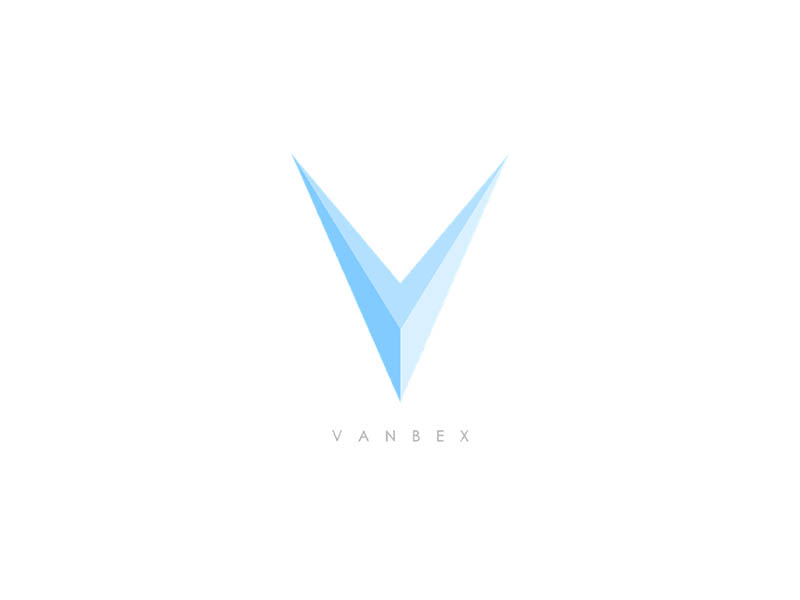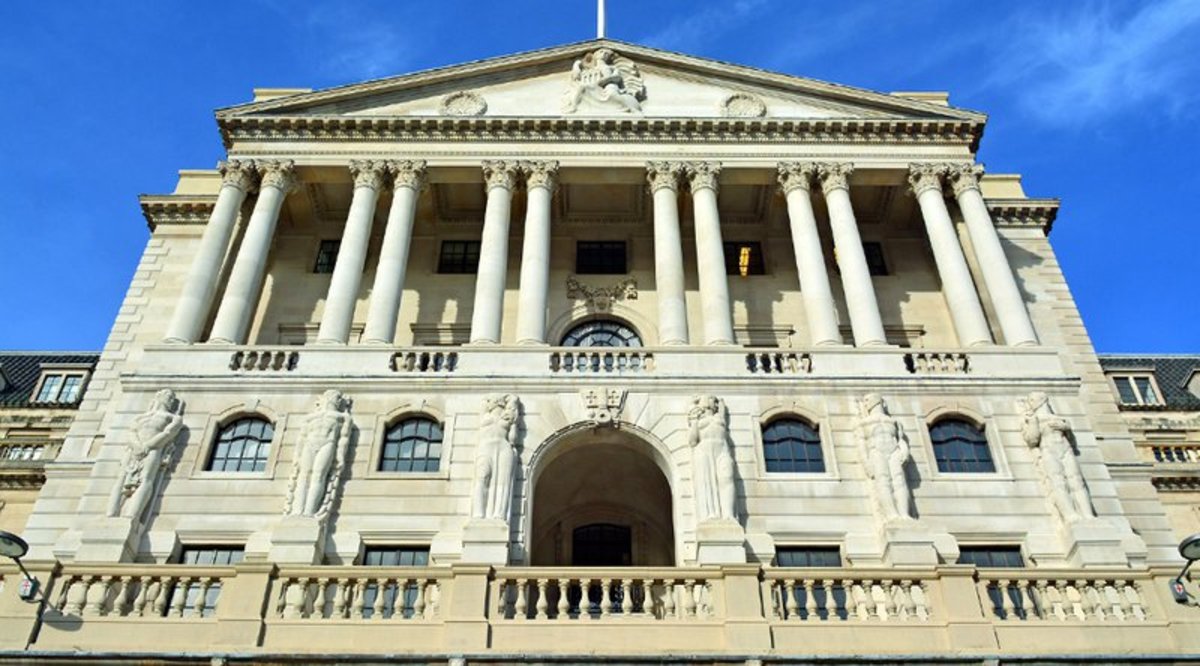Mar. 14, 2016 — Has the conversation evolved already? Amid the blockchain technological push, another variation has emerged — the “tangle.”
The Vanbex Report is a periodic summary of the blockchain industry’s top news stories from the biggest companies, as well as the most promising newcomers.
The Tangle and the Blockchain
 The Tangle or Directed Acyclic Graph (DAG) chain essentially means a collection of nodes or vertices, while allowing connectivity between nodes but with no circular edgings. In other words, you cannot start at one vertex and eventually loop back to that same vertex via a sequence of edges (connections).
The Tangle or Directed Acyclic Graph (DAG) chain essentially means a collection of nodes or vertices, while allowing connectivity between nodes but with no circular edgings. In other words, you cannot start at one vertex and eventually loop back to that same vertex via a sequence of edges (connections).
A blockchain can be loosely defined as a ledger of transactions shared by participating nodes in the system operating under some kind of consensus protocol.
While blockchain technology will help automate contracts, the insurance industry, accounting, financial and others, there are critics that say such a robust framework is not ideal for machine-to-machine payments on a smaller scale.
Enter Iota, a micro-transaction cryptotoken said to be designed for the Internet-of-Things (IoT).
At a Bitcoin Talk, Iota stated: “Unlike the complex and heavy blockchains of Bitcoin and the like, which were designed with other uses in mind, Iota is created to be as lightweight as possible, hence the name “Iota” with emphasis on the ‘IoT’ part.”
IoT wrote further, “these connected IoT devices must be able to automatically pay miniscule amounts to one another in a frictionless manner without having to compromise on product design by introducing additional hardware.”
But will blockchain technology hinder this?
Also Read: CB Insights, KPMG The Pulse of Fintech, 2015 in Review
 The IoT will permeate electronics, household items, bringing inanimate objects to life in a manner of semantics, granting selfless interaction to an estimated 20 billion connected devices by 2020.
The IoT will permeate electronics, household items, bringing inanimate objects to life in a manner of semantics, granting selfless interaction to an estimated 20 billion connected devices by 2020.
IBM and Samsung’s vision of appliances of the future sounds like something out of a Pixar film.
They see appliances, objects of the future as being connected instruments, able to retrieve updates, trigger self-diagnoses for debugging and various other functions. This is something they call the Autonomous Decentralized Peer-to-Peer Telemetry (ADEPT) system, a concept which surfaced in 2015.
The ADEPT system would be connected to blockchains that provide the backbone of the system, using a mix of proof-of-work and proof-of-stake to secure transactions.
The issue of scalability and the cumbersome aspects seen within cryptocurrency networks was addressed by ADEPT, with the team stating in 2015: “Multiple efforts like sidechains, treechains, and mini-blockchains are ongoing to address this problem.”
“While each approach has its merits and demerits we are yet to see consensus on a common approach across the board. A blockchain to cater to hundreds of billions of devices needs to be scalable.”
Also Read: ADEPT: Practicioner Perspective
Queue Iota. The company stated it isn’t seeking to replace the blockchain entirely.
Their technology will “also act as a supplementation to the current blockchain ecosystem by acting as an oracle for smart contract platforms like Ethereum and Rootstock.”
Further, Iota claims since its technology enables the ability to include checkpoints for transactions it will increase the security of blockchains.
These “value-added” aspects are pivotal.
Bitcoinist.net published an article titled, “IOTA: Internet of Things Without the Blockchain?” Security Ledger, a different piece, “Blockchain or Tangle? Securing Transactions on the IoT.”
The headlines suggest a one-or-the-other scenario.
Maybe Iota’s perspective is currently accurate, that blockchains are too complex for micro-transactions of the IoT world system, but blockchains are also malleable and as projects like Tendermint exhibit, the goal is agnostic programming for versatile use case applications.
It’s not the tangle versus the blockchain. It simply can’t be.
As the projection of billions of connected devices within the next decade are tossed around, it seems most practical Iota, as a micro-transaction cryptotoken, must operate in conjunction with the myriad blockchains that will connect the myriad devices belonging to a diverse corporate world of things.
Some news stories from this past week:
U.S. rep seeks fintech community to educate Congress
David Schweikert calls on attendees at the DC Blockchain Summit
U.S. Rep. David Schweikert, R-Ariz, talking to attendees at the DC Blockchain Summit on Mar. 3, issued an invitation to those there and involved in the ‘disruptive’ technology to reach out to Congress.
“I will make the argument right now that only six or seven of my brothers and sisters [in Congress] even understand the basic mechanics of the distributed ledger,” Schweikert said, as quoted at TechTarget.com.
Schweikert’s presence at the summit itself and plea to the FinTech community is a certain sign attention has been seized at the highest level of governance in the U.S.
Schweikert also serves on the House of Representatives’ Financial Services Committee.
Regulation Awaits, Public Blockchain Not Wanted
 Bank of England Chief Cashier: ‘we need to respond to what would regulation mean.’
Bank of England Chief Cashier: ‘we need to respond to what would regulation mean.’
Last week, Reuters revealed regulators and bankers alike are sitting tight — anxious perhaps — awaiting for FinTech innovations to shape up and illustrate how they may benefit or disrupt the traditional system of finance.
Bank of England (BoE) Chief Cashier, Victoria Cleland was quoted by Reuters, sayig, “We need to understand what the [fintech industry’s] model is. With all these things going on, we need to respond to what would regulation mean.”
The concern is innovations will eradicate the traditional business of banking and asset exchange and drive a wedge in the industry similar to what Uber has done to the taxi service industry around the world.
Charley Cooper, managing director at R3 Group, further indicated: “I don’t know that there is any regulator in the world that is anywhere near close to accepting the idea of a public distributed ledger for financial services.”
Whether that is even a thing or can be successfully achieved is another subject entirely.
The wait on regulation, in England at least, ensues.
Brexit Could Affect Bitcoin, FinTech Industry
Seven of 10 FinTech companies say exit could spell relocation
With June 23 set as the date of the referendum on whether Britain stays or exits the European Union, a chunk of FinTech and Bitcoin-related business are prepared to leave the country as well.
Reuters reported, that seven out of 10 FinTech companies expressed intentions to move their headquarters out of London to a more favorable destination like Dublin or Luxembourg if Britain exits the European Union.
Reuter further reported, “All 10 said British exit from the EU, or “Brexit”, was a serious concern for their businesses.”
Britain is considered one of the brightest locations for FinTech startups and for the nation, pulling in 6.6 billion pounds in 2015, more so than California and New York.
Also Read: Africa: Bitcoins and FinTech
Some Upcoming Events …
 Smart Contracts, Blockchain & Data Standards
Smart Contracts, Blockchain & Data Standards
A free half-day FinTech forum hosted by XBRL US will be held on Apr. 4 in New York City. Speakers from Consensys, ItBit, Markit, Nasdaq, Safeguard Scientifics will be featured. For more information visit: http://goo.gl/kXe3jQ.
Bitcoin And Blockchain Leadership Forum
The forum takes place on Mar. 23 in Central London. The Bitcoin and Blockchain Leadership Forum launched in May 2015. Go to bblf.info to register.
Money 20/20 Europe
Touted as an “experience for European innovators” and “catalyst for the growth and development of the payments and financial services ecosystem.” To register go to: money2020europe.com/register-2016.
Press Contact:
Kevin Hobbs
Email: [email protected]
PH: (604) 379-9032
Images courtesy of IOTA, Wikipedia Commons, Money 20/20 Europe, 3G.co.uk








